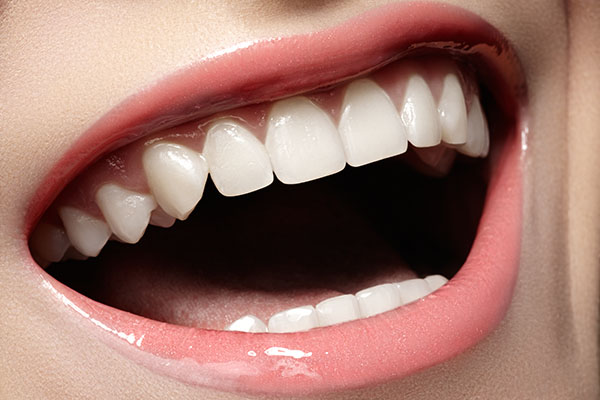Blood Pressure Medications and Your Gums

Blood pressure medication can affect many parts of the body, including the gums. The gums may seem largely disconnected from a medication meant to control the circulatory system. In fact, gum health and blood pressure are closely related. Although this medication can negatively affect the gums, educating yourself is the first step in counteracting any unpleasant symptoms.
What is high blood pressure?
Put simply, high blood pressure (also known as hypertension) is a condition where the heightened force of blood rushing through arteries begins to put a strain on vessel walls. Blood pressure issues build up over a long period of time as it climbs. When blood pressure is high enough, it begins to cause health problems such as heart disease.
Measuring blood pressure is determined by two factors: The amount of blood pumped by the heart and the amount of resistance to blood flow within the artery. For example, if the blood is pumping at a higher rate through a narrower channel, blood pressure is high.
How does blood pressure medication work?
Anti-hypertensive drugs may not cure high blood pressure, but these drugs are a very important ingredient in maintaining a healthy lifestyle. There are multiple medications out there to control high blood pressure.
Diuretics, for example, are usually the first type of drug prescribed. These aid in the functionality of your kidneys to take salt and water out of the body. Once this happens, you will have less overall fluid in your arteries, lessening pressure on the walls.
Beta-blockers slow down the heartbeat and therefore makes blood flow through the arteries with less force. Alpha-blockers halt nerve signals attempting to tell your blood vessels to narrow, causing the channels to relax and blood to flow more freely. ACE inhibitors are another popular option which prevents your body from producing a hormone that causes vessels to tighten.
How does high blood pressure medication affect gums?
Those who suffer from high blood pressure may experience several side effects related to medication. For instance, calcium channel blockers are a type of hypertension medication known to cause gum overgrowth. When this troubling symptom advances, chewing can become difficult and proper cleaning becomes near impossible.
With enlarged gums, it is easier for bacteria to settle under the gumline. Even after a deep cleaning, plaque starts to build up and gum disease can take hold. Mild cases of gum disease, in early stages called gingivitis, can progress into a more serious condition called periodontitis. At this point, gum tissue starts to fail and tooth loss can occur.
Keeping your gums healthy
Enlarged gums are at a higher risk for inflammation. The best way to counteract susceptibility to infection is by employing a rigorous daily oral hygiene routine. Gum overgrowth is exacerbated by bacterial attacks, so cleaning the area thoroughly each day and night is the best defense against swelling.
Removal of plaque will suppress this symptom. Brush your teeth meticulously every morning and night. Be sure to clear the areas between teeth with floss once per day before brushing at bedtime.
Never miss a dental cleaning, either. Having your teeth professionally cleaned by a dentist every six months will clear plaque you may have missed.
The bottom line
Following these steps will ensure your gums are healthy no matter what medication you may be taking.
Request an appointment here: https://www.carolinasmilesdentist.com or call Carolina Smiles Family Dental at (828) 974-3326 for an appointment in our Brevard office.
Check out what others are saying about our services on Yelp: Read our Yelp reviews.
Recent Posts
A smile makeover can be achieved with the help of one procedure or several. What a dentist recommends depends on the attributes of your smile you would like to change. To give you a better picture of some treatments that can transform a smile, take a look at these five popular treatments.Slight to moderate misalignments…
Having a healthy and attractive smile not only transforms your appearance but also boosts your confidence. A smile makeover combines cosmetic dental procedures that are tailored to your unique needs and treatment goals. If you have been wondering if you have been contemplating whether a smile makeover is right for you, here are five reasons…
Dental implants feel and function just like natural teeth, and they can last a lifetime. An implant is a rod or screw that is placed in the jawbone. It is usually made out of titanium, but it can also be made out of zirconium.Dental implants replace missing teeth roots, and restorations like crowns are placed…
Getting a smile makeover means getting at least one type of cosmetic dental treatment. You may want to improve your smile, but along with these treatments is the benefit of better oral health. Finding out more about this makeover can help you make informed decisions. Here are the details to consider about a smile makeover.The…


